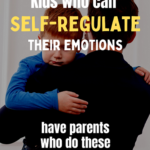Children’s emotional development lays the groundwork for their behavior and overall well-being. Emotions play a significant role in how children perceive and respond to the world around them. As parents, caregivers, and educators, understanding and supporting children’s emotional development is crucial in fostering healthy behaviors and building strong foundations for their future. In this comprehensive guide, we will explore the intricacies of children’s emotional development, its impact on behavior, and practical strategies to nurture emotional intelligence in children.
The Importance of Emotional Development
Emotional development refers to the process of acquiring and understanding emotions, as well as learning how to manage and express them appropriately. It is a vital aspect of a child’s overall development, influencing their social interactions, relationships, and decision-making abilities.
Early Emotional Development
Emotional development begins in infancy, even before a child can express emotions verbally. During the first year of life, infants develop a basic understanding of emotions through facial expressions and vocalizations. As they grow, their emotional repertoire expands, and they start to recognize and respond to the emotions of others.
The Role of Caregivers
Caregivers play a pivotal role in shaping a child’s emotional development. Responsive and sensitive caregiving provides infants and young children with a sense of security and trust, promoting emotional well-being. When caregivers acknowledge and validate a child’s emotions, it helps them learn to recognize and regulate their own feelings.
Read also : Positive Parenting Techniques 101: A Comprehensive Guide to Transform Your Effective Parenting Journey
Understanding the Range of Emotions
Children experience a wide range of emotions, each serving a purpose in their development and communication.
Primary Emotions
Primary emotions, such as joy, sadness, fear, and anger, are universal and emerge early in childhood. These emotions form the foundation of a child’s emotional experiences.
Secondary Emotions
As children mature, they begin to experience secondary emotions, which are more complex and arise from a combination of primary emotions. Secondary emotions include guilt, jealousy, and empathy.
Emotional Expressions
Children may express their emotions in various ways, such as through facial expressions, body language, and verbal communication. Understanding and interpreting these expressions are essential in addressing a child’s emotional needs.
The Link Between Emotional Development and Behavior
Children’s emotional development significantly influences their behavior and responses to different situations.
Emotional Regulation
Emotional regulation refers to a child’s ability to manage and modulate their emotions appropriately. Children who have developed effective emotional regulation skills are better equipped to handle stress, frustration, and disappointment.
Impact on Social Interactions
Emotional development plays a crucial role in shaping a child’s social interactions. Children who can understand and empathize with the emotions of others tend to have more positive and harmonious relationships.
Coping Mechanisms
A child’s emotional development affects their coping mechanisms when faced with challenges or difficult situations. Those with well-developed emotional skills can cope more effectively and adapt to changes.
Nurturing Emotional Intelligence in Children
Emotional intelligence is the ability to recognize, understand, and manage one’s emotions and those of others. Nurturing emotional intelligence is essential in helping children develop into emotionally healthy individuals.
Encourage Emotional Expression
Create a safe and supportive environment that encourages children to express their emotions freely. Avoid dismissing or trivializing their feelings, as it may inhibit emotional openness.
Teach Emotional Vocabulary
Help children build their emotional vocabulary by naming different emotions and discussing their nuances. This enables them to articulate their feelings more effectively.
Model Emotional Regulation
Be a positive role model for emotional regulation by expressing and managing your emotions in a healthy manner. Children learn by observing the behavior of significant adults in their lives.
Practice Empathy
Encourage empathy by teaching children to consider the feelings of others and validating those emotions. Engaging in perspective-taking exercises can further enhance empathy.
Supporting Children Through Emotional Challenges
Children may encounter emotional challenges as they navigate their development and life experiences.
Dealing with Anxiety
Provide a supportive and understanding environment for children dealing with anxiety. Offer coping strategies such as deep breathing exercises or engaging in calming activities.
Addressing Anger and Frustration
Teach children healthy ways to express anger and frustration, such as through assertive communication or finding constructive outlets for their emotions.
Managing Grief and Loss
Support children through the process of grief and loss, allowing them to express their emotions and offering comfort during difficult times.
Conclusion
Understanding children’s emotional development is the cornerstone of fostering healthy behaviors and positive emotional well-being. By recognizing the importance of emotional development, supporting emotional expression, and nurturing emotional intelligence, we can help children navigate the complexities of emotions and behaviors, paving the way for a fulfilling and emotionally rich life.
FAQs (Frequently Asked Questions)
How can I help my child develop emotional intelligence? : Encourage emotional expression, teach emotional vocabulary, and model emotional regulation to nurture emotional intelligence.
What are some signs of emotional challenges in children? : Signs may include frequent emotional outbursts, withdrawal, changes in behavior, or difficulty in managing emotions.
Is emotional development the same for all children? : No, emotional development varies among children and is influenced by individual temperament and life experiences.
How can I support my child through a difficult emotional time? : Be present, listen actively, and offer understanding and comfort to support your child through difficult emotional moments.
What role does emotional intelligence play in adulthood? : Emotional intelligence is vital in building strong relationships, making sound decisions, and managing stress effectively throughout adulthood.





